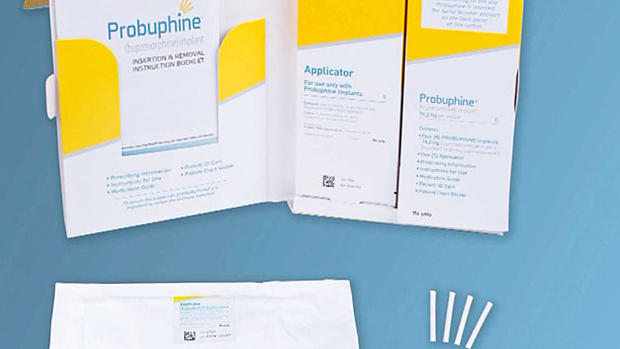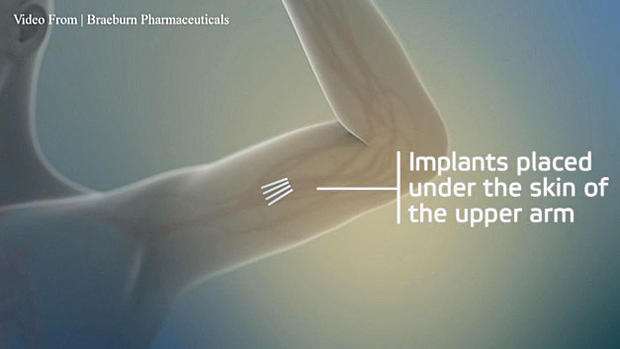New Implant Treatment Helps Recovering Opioid Addicts Stay Clean
FALL RIVER (CBS) - Many people addicted to opioids are desperate to quit, but the drug has such a powerful hold over their bodies, they simply can't fight the cravings.
Related: Opioid Addiction Recovery Resources
A recovering addict from Fall River who didn't want to use her real name, so we'll call her Kate, says opioids took over her life.
"When I was using, I was a mess," she said. "It was lie after lie. I put my mom through a lot of stuff and she never deserved it."
But Kate finally realized, she had to find a way to stop.
"Either I'm going to die, or I'm going to get my life back together," she said.
Through counseling and treatment with a drug that keeps withdrawals and cravings in check, she started feeling hopeful. Until she ran into supply problems with the drug she needed at local pharmacies.
"I'm sorry, we ran out. You are going to have to go somewhere else," she said, describing what pharmacists would say to her when she tried to refill her prescription.
That is when Dr. Genie Bailey of the SStarr Treatment Center in Fall River suggested she try a new product called Probuphine.
Four small rods are implanted under the skin in the upper arm which continuously release that craving-fighting drug for six months. It is the same delivery system used in the Norplant birth control device.
Just like the oral medication she was taking, it blocks the brain from any effects of the opioid.
So even if Kate started using again, she wouldn't get high.
According to Dr. Bailey, the steady dose of the medicine is critical for successful treatment and that consistency can be tricky for some addicts.
"We know people tinker with their dosages. They may sell part of it sometimes, they may hold onto some of it in case their prescription runs out," she explained.
Not all addicts are candidates for the treatment. In order for the treatment to work, the user has to be stable on a moderate dose of the oral medication before the device can be implanted.
Kate says the device is working for her and she's grateful for the second chance.
"I've been promoted. I have money in the bank. I'm saving for a house. I'm engaged. I go on vacations. I didn't have any of that before," she said.
The implant is expensive, several thousand dollars for the six months, but it is covered by many insurance plans.
However, access can be tricky because it takes a specially trained physician to implant the device and to remove it.
This is the first in a series of WBZ-TV reports on confronting the opioid crisis in Massachusetts.






